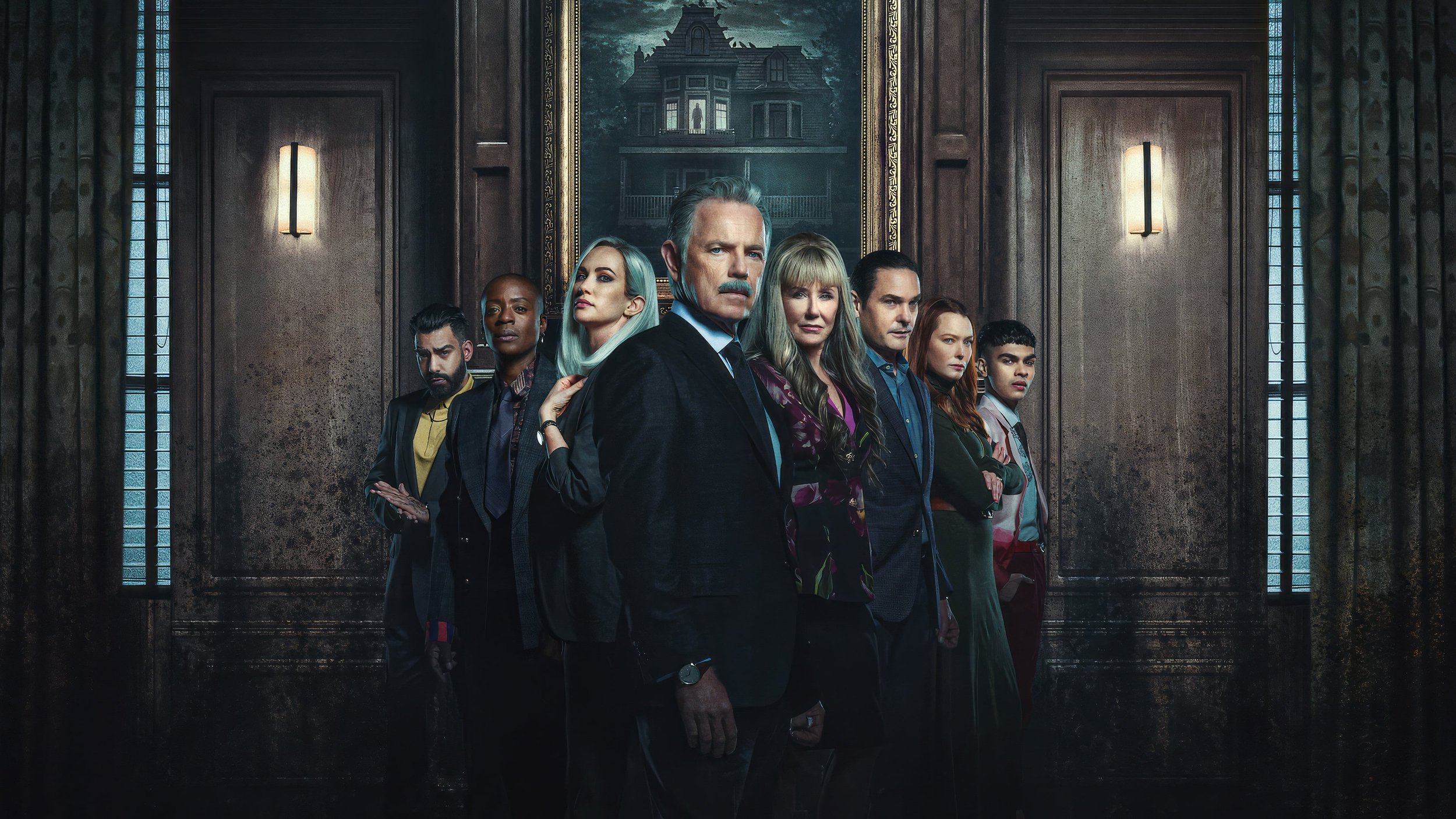The Fall of the House of Usher
NetflixIs there anything that Mike Flanagan cannot do? In under a decade, he went from directing the creepy Oculus to becoming the go-to adapter of Stephen King novels with the excellent Gerald’s Game and Doctor Sleep now under his belt (and the currently-filming Life of Chuck). Most importantly, he has proven to be one of the finest creators of mini-series in America, knowing how to structure and pace a narrative over 7 or 10 episodes without overstaying his welcome. After successfully adapting Shirley Jackson’s The Haunting of Hill House and Henry James’s Turn of the Screw (i.e. The Haunting of Bly Manor), he has shifted his focus to arguably the greatest horror writer of all time: Edgar Allan Poe.
Do not be deceived by the title: The Fall of the House of Usher is not just a modern retelling of the cursed tale of Roderick Usher and his twin Madeline: this 8-episode series is an epic adaptation of several tales of terror and woe from the Boston-born writer. By following the downfall of a Sackler-like family, whose riches were built on addicting pharmaceuticals and deceptions, Flanagan can have fun bringing to life the orgiastic Masque of the Red Death, the unreliable Tell-Tale Heart, the gruesome Murder in the Rue Morgue, and many others, including the mournful Raven.
“Mournful” is the right word to describe this show, as well as Flanagan’s entire oeuvre. While The Fall of the House of Usher has far more dark humor than any of the filmmaker’s other works (courtesy of contemporary lingo, kitschy production design and heightened performances by the six children of Roderick), at its core it is a story of grief. Now that the show has been released, it is unthinkable to imagine anyone other than Bruce Greenwood in the role of the Usher patriarch. He has such poise, such charisma, and such intensity that he commands every second on screen. His imposing, ruthless nature is greatly juxtaposed by those of Roderick’s children: Henry Thomas’s Frederick is slimy, Samantha Sloyan’s Tamerlane is self-absorbed, Kate Siegel’s Camille is sociopathic, T’Nia Miller’s Victorine is blindly ambitious, Rahul Kohli’s Leo is erratic, and Sauriyan Sapkota’s Perry is childishly immature.
The main cast is rounded up by Mary McDonnell as the cold Madeline, Mark Hamill as the menacing lawyer Arthur Pym (a refreshingly subdued performance from him), Ruth Codd as Roderick’s very young wife Juno (the biggest revelation in the cast, she is someone to look forward to), the always impeccable Carl Lumbly as assistant attorney Auguste Dupin, and a transformative Carla Gugino as the mysterious, seductive Verna. A prolonged conversation between Dupin and Roderick is the framing device for the whole show, as each episode focuses on the unexpected death of each Usher sibling.
As the show opens with the final funeral of Roderick’s offspring, this frees up Flanagan to play with both genre expectations and his own cinematic rules: the back and forth between Lumbly and Greenwood is an absolute delight, growing more self-aware and philosophical as the episodes go on. It is worth noting how cleverly Flanagan implements direct references to the works of Edgar Allan Poe: outside of the more obvious stories and character names, it is the use of the writer’s poems that hits particularly hard. The delivery of Bruce Greenwood (and also Zach Gilford as a younger version of the character) is chilling and heartbreaking, a testament to the immortal power of Poe’s words.
What makes The Fall of the House of Usher yet another stellar mini-series is its themes: the Usher family is entirely unsympathetic, an embodiment of all the greed and evil that has corrupted countless people in high places. Audiences can but feel pity for these rich opportunists, who built an empire on the death of thousands and thousands of innocents who needed help, all of this aided by the extremely flawed healthcare system in the USA. Outside of all of the jumpscares and bloody killings, the true “fall” of the title is the indictment of America and its troubled history: as the deeply moving documentary All The Beauty and the Bloodshed showed last year, there are too many families like the Sackler’s out there that have seemingly sold their soul to the devil, completely losing their humanity in the process.
By the time The Fall of the House of Usher reaches its inevitable climax, there is a strong feeling of hope for the future, something that has characterized similarly gloomy productions from Flanagan: it is never too late to bring good change into the world, and it is always important to be aware of the good and love that surrounds all of us. While it lacks the gothic and historical production design of the iconic adaptations of Roger Corman and Jean Epstein, The Fall of the House of Usher is a somber and important limited series for the times we are living in, with the strongest political statements of Flanagan and some of his most grotesque characters.


